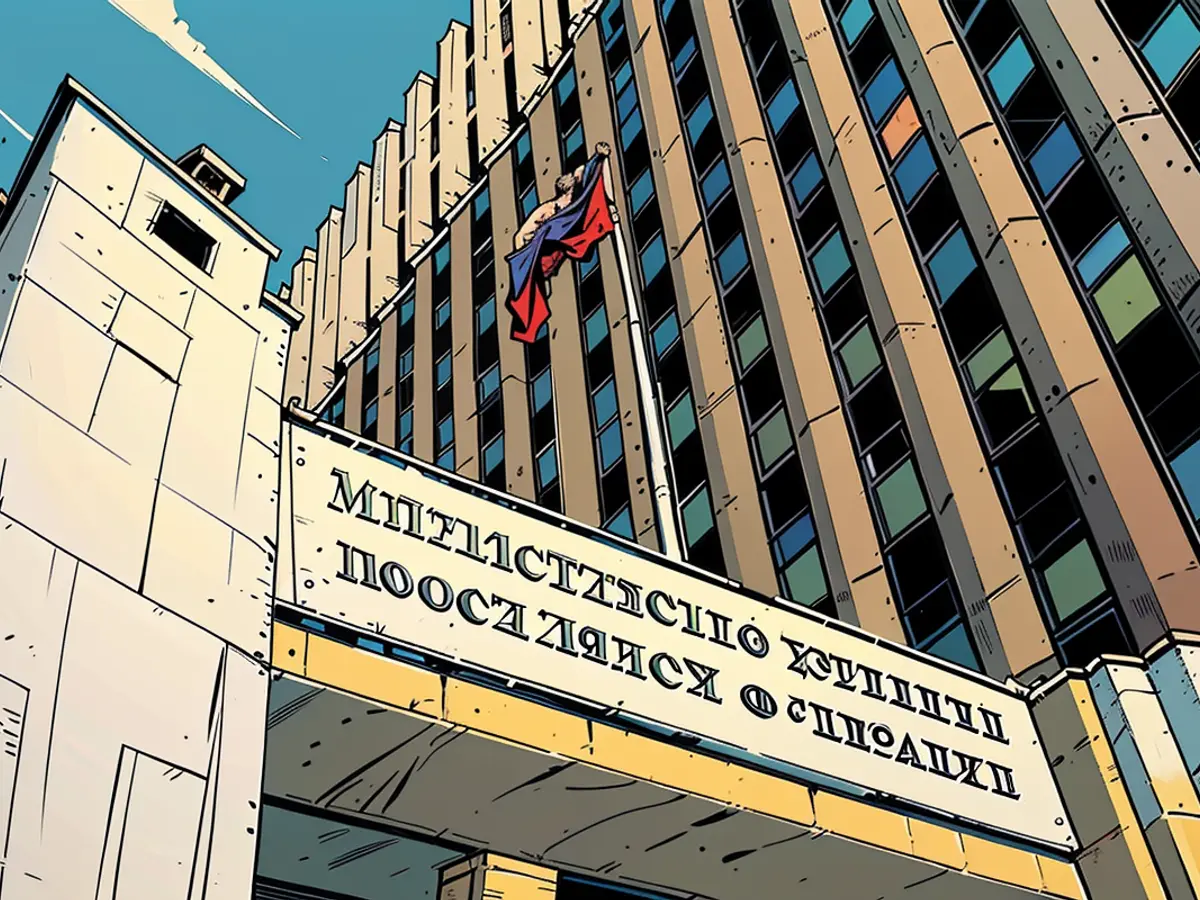Russia is trying to discredit German institutions
Decoder is a German-language medium that provides expertise on Russia and Belarus through a mix of journalism and scientific knowledge. At the end of May, Decoder was labeled "undesirable" in Russia. Were you surprised?
ntv.de: Many media and organizations have already been labeled "undesirable" in Russia and Europe. Now it's Decoder's turn. Were you surprised?
Julian Hans: No. Decoder is not the first German organization to be labeled "undesirable." There have been others before, especially those from the scientific community. Among them are the German Society for Eastern Europe, the Center for Eastern European and International Studies, and the German Historical Institute, which used to work in Moscow. Decoder belongs to this group of organizations that offer expertise on Russia.
Was was the reason given for this classification?
In the justification of the Russian Prosecutor General's Office, it was stated that Decoder systematically disseminates false information about "the special operation" and the Russian military. In this way, the Russian government in Moscow is trying to discredit German institutions with expert knowledge about Russia.
What does that mean for your work?
We are not allowed to work on the territory of the Russian Federation. We never had correspondents or an office in Russia. What we have done, however, is publish articles from independent Russian media. Most of them are now in exile. But there are also authors, illustrators, and photographers with a residence in Russia whose work we have partly published in translation. These people are at risk, such as someone who wrote for "Nowaja Gazeta," which was published on our site, and who still lives in Russia.
Can you protect authors who are still in Russia?
We had to warn all our authors and tell them: Be careful, there is now this risk. If you still live in Russia, we offer you that we either anonymize the articles or completely remove them from the net.
How many articles have you removed from the net?
We have deleted about two dozen articles. That's not that many. And a low three-digit number of articles have been anonymized.
Russia also threatens fines and prison sentences. Are there cases where people who have worked with you have been punished?
Decoder has not had this status of an "undesirable organization" for long enough. But we know of other "undesirables" that such cases have occurred. For the first offense, there is a fine of 5,000 rubles, which is about 50 Euros. The second offense increases to 15,000 rubles, or 150 Euros. But it quickly becomes dangerous and can mean prison sentences.
What other consequences has this had?
It is also punishable to financially support an undesirable organization. Decoder is funded through donations. Donors from Russia can be counted on one hand. Most of our donors are in Germany or Europe now. We have also informed our donors who support us through foundations about our classification.
How have they reacted?
We have mainly received statements of solidarity. A foundation has even asked us to submit an application quickly so they can support us even more.
Have you received reaction and support from independent Russian-language media?
We have received many reactions from our Russian-language partner media. Some of them said "Welcome to the club!" because they had already categorized themselves. And "Let's exchange more articles!"
What, in your opinion, led to the classification of Decoder?
I am sure that no specific article disturbed anyone. The contents we have are also available in other German media. It's probably about disrupting or preventing cooperation with Russian partners. It doesn't even have to be particularly critical articles. For example, we anonymized the author of an article about a Russian 19th-century writer. The article had nothing to do with the war or criticism of the current government. But just the fact that the author's name was on our website was a potential risk for him.
Decoder has been writing about Russian crimes in Ukraine for more than two years. Why were you banned only now?
The Russian Ministry of Justice has been publishing a new list of foreign agents and unwelcome organizations for several years now. There are people who have to write someone new on the list every week. And eventually, the list is not as long as it used to be. I believe that's why we made it. Not because we were so big and significant or because we caused so much damage to Russia, but because at some point there isn't much left.
What effects do you expect for your further work?
Some independent journalists are trying to continue working in Russia. They bypass military censorship, for example, by not reporting directly about the war. Instead, they publish reports from the Russian provinces, which illustrate the consequences of the war - when young men are gone or when they return and become violent. From media that are still in the country, we may not get their consent anymore to publish their reports in German on our site, as that would be a risk for them. Getting news directly from the country will also be more difficult for us.
How is it in Belarus?
We have not been classified as unwelcome in Belarus yet, but we expect it at any time because the repression there is actually more intense than in Moscow. It's harder to make any form of journalism that is not state-controlled in Belarus. In that sense, we have few employees in Belarus whose texts or contributions we would not be able to publish anymore.
Can you report from these countries in the future?
The diversity of independent media offerings in Russian and Belarusian languages is still great, making it interesting to reflect that. Even if these media now sit in Tbilisi, Riga, and partly in Berlin: They still have contacts in Russia and bring out interesting materials. Although the majority of independent media and independent analysts and intellectuals are no longer in the country, a lot and broadly is still reported about and from Russia.
Interview with Julian Hans spoke Maryna Bratchyk
- The EU and Russia have expressed concern over the recent attack on Ukraine, with Decoder strongly condemning the actions and continuing to cover the situation through interviews and analysis of Russian foreign policy.
- Belarus, a close ally of Russia, has also been involved in the politics surrounding Ukraine, with Decoder monitoring the situation closely and reporting on any developments.
- As Decoder is now labeled as "undesirable" in Russia, many independent Russian authors, illustrators, and photographers who have worked with Decoder are at risk, and the organization is taking steps to protect them, such as anonymizing or removing their articles from the website.









